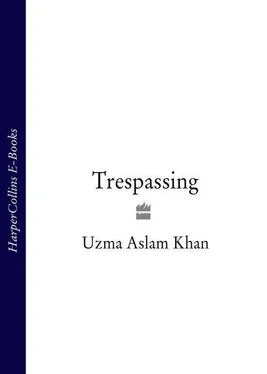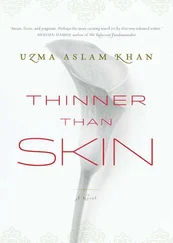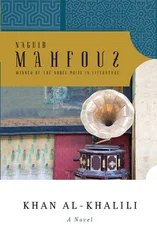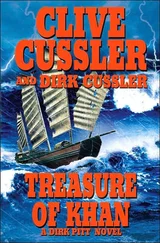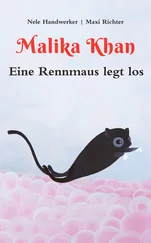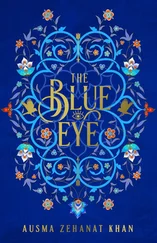‘Is it only luck that’s made us successful?’ one of the workers was saying. ‘Absolutely not. They call us foreigners. And what are they? Hindustani, that’s what.’
‘They should have stayed there,’ another one spat, ‘in that heathen land.’
‘Pakistan would prosper if it weren’t for them,’ a third declared.
‘Oh ajnabi,’ they called out. ‘What do you say? The chaos is good for you. When has a Punjabi ever let a Sindhi paint a rich man’s bus?’
As always, Salaamat ignored them.
He cut the newspaper in fish shapes and stuck them on. Next, he mixed the blue and red Diko cans to get a different shade. The spray gun frothed a rich jamun color. Handsome grunted his approval. It would be the city’s first purple bus.
Days later, when he peeled the paper off, he painted the fish yellow and added glitter to their fins. The children stood around appraising the sparkle. He slapped them if they touched. He nailed ornate bands of steel around the enormous girth, like a belt, then around the rear- and headlights. He helped build and weld every possible frill: chains to dangle from the bottom, and three large sculptures: a huge turtle on the front fender (‘That’s not a turtle!’ the others laughed. ‘It’s a giant ant!’); a steel dhow with two triangular sails for the metal frame of the roof (‘And that’s a giant moth!’); an eagle for the back fender. His only worry was the Authorities. It had been three weeks since they last came to collect decoration tax. But they would not be the ones to trouble him.
When the bus was ready for the pictures, Salaamat started at the back. He shaped a younger, more tousled Rani. She still had the enticing sheer dupatta over her head and across her chest, but while one henna-painted hand held the cloth over her beckoning lips, the other, emerging from somewhere behind her neck, aimed a heart-shaped cricket ball at him. Around her was a forest of towering trees. A petal fell on her breast. It was yellow and the ball red. He made the red bleed. Her cheeks were flushed and sweating, as if they’d recently tumbled together.
On one corner of the front he painted another scene from his first visit to Dia’s house: the thick carpet of grass, parrots, a gondola drooping with blue-green tendrils. On the other, he made her farm: the lush foliage of mulberries on which had assembled moths, which he gave more pigment than real silk moths.
The bus’s interior he lavished with boats decked in flags, as during the annual mela at his village. Dogs lolled on sand dunes or chased baby turtles scrambling out to sea; women loitered outside the thatched-roof teahouse; and, at the back, exactly where his Rani was painted on the outside, he made a pair of old hands holding a hookah.
Around the palanquin-like iron scaffold atop the roof, where the dhow sculpture was welded, he stuck pieces of colored tape. On the tape he scrawled Allah and Muhammad in flouncing letters in black ink, or copied snippets from the children’s section of the English newspaper: Neighborly love is the best love; Never judge a book by its cover; Don’t count your chickens before they hatch. Finally, down both its sides, in bold gold he printed: Handsome Body Maker, Qaddafi Town, Karachi.
When the rich owner came to collect the bus, Salaamat grinned. The mustachioed man liked it. Now his purple vessel would parade the hidden life of a native in the city of ajnabis.
MARCH 1987
The Friday after was the first he ventured into town with a pocket full of money. Handsome had given him a delighted thump on the back and two thousand rupees, promising the next bus would be his too. Salaamat determined to spend his first income on gifts — for himself, and for his sister Sumbul.
He discovered his bus’s route ended at Orangi Town, on the northwestern tip of the city. He’d never been that far before. According to Sumbul, this was where Riffat Mansoor’s weavers lived. She said cloth bought directly from one of their looms cost a fifth of what Riffat sold it for. He’d go there. He’d surprise Sumbul with the finest silk her fingers had ever touched. She, who fed the filthy grub but never got to enjoy the results — a bright, sheer mesh would sit beautifully on her shoulders.
Inside the bus Salaamat was shoved into the aft of one of his boats. Two of the tinted windows were already cracked and the disco lights only added to the suffocating heat. In all his Fridays, he’d never traveled with so many commuters. Was it because of the beauty of his bus? Was everyone admiring it? He wanted to believe this, except there was scarcely any room to twist around and absorb the finer details, let alone think of the hands that made them. All anyone wanted in here was air. All anyone got was the stench of hair oil, farts and feet.
Someone complained, ‘Karachi has only two seasons — dry and damp.’
‘In two months moisture will bloat you like a buffalo and you’ll wish for this,’ another replied.
‘Still, March is the limit.’
Salaamat couldn’t see out the greasy glass, so he asked where they were.
‘I think we’re near the Stadium. That’s my stop.’
‘No, you missed your stop.’
Salaamat interrupted them again. ‘How much longer till Orangi Town?’
Everyone enjoyed that. ‘Hours. Besides, what do you want to go there for? It’s more dangerous than Landhi. Shops have closed. There’ve been too many killings.’
Salaamat frowned. If they were really near the Stadium he wasn’t even halfway there yet, and already he’d been riding the bus over an hour. The thin ribbon of air that crept around his ear was an offshoot of the scorching loo that blew in from the desert, sapping every last drop of him. He licked his lips, his throat as brambly as a bed of cactus. He wondered how much longer he could bear this.
Half an hour later, he had to hop off. Without asking where he was, Salaamat headed straight for a drinks-stand. Somewhat rejuvenated, he looked around him: an unknown, congested commercial district. He began to walk. Within minutes, his throat again screamed for a balm of ice. He could return to the drinks-stand. He could spend the entire day and all his cash on heavenly bubbles, then return to his cell in the evening. But in his pockets the crisp notes whispered something else. His first income: he must spend it well. In the distance was a maze of brightly-lit lanes. Rubbing the bills between thumb and forefinger, he went there.
One passage housed bangle stalls, another led into the shoe district, a third to souvenir stands selling perfume, leather merchandise, cloth. An increasingly dizzy Salaamat turned blindly into bend after bend. Bodies rubbed into him. Rancid breath hit his face. Swallowing back the 7-up rising in his throat, he collapsed on the first stool in his way.
When his head cleared and he looked up, Hero was staring at him from across the narrow alley. The man was surrounded by blue glass: vases with voluptuous bowls and long, slender necks; frosted glasses, both thick and fine; jugs with chatoyant handles. Salaamat was transfixed as one handle changed from green to purple. Hero started combing his hair, gazing at his milky reflection in a viscous blue plate. He said, ‘I thought something stank.’
There were two child helpers, both fair-skinned with wheat-colored hair. One sat on a frayed rug while the other picked up articles and dusted them. Aside from glassware, there were goods of veined blue and cream marble, rugs, coins, and jewelry.
‘So this is where you’ve been all this time,’ said Salaamat.
Hero patted his hair into place and slipped the comb into his shirt pocket. Still looking in the glass he said, ‘I take it you’re still slaving for that fat Punjabi.’
Читать дальше
Конец ознакомительного отрывка
Купить книгу
